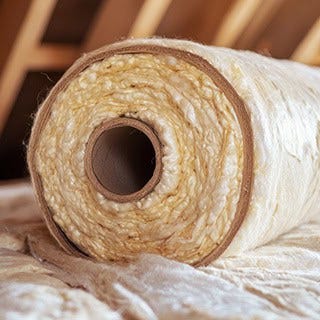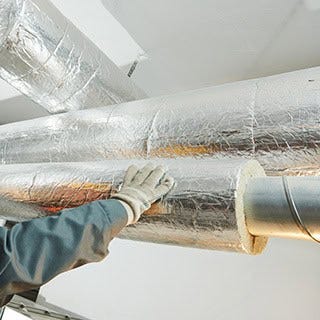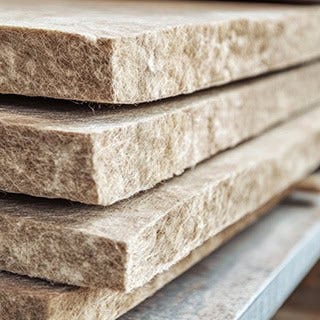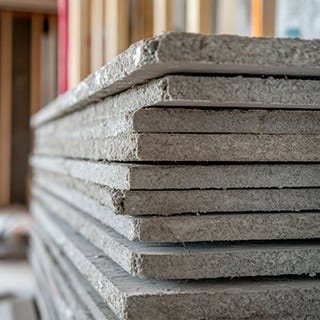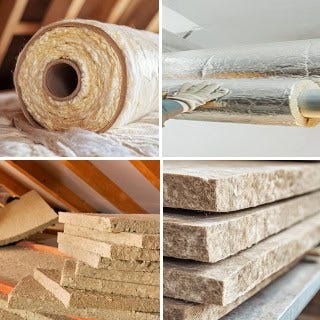How Much Insulation Do You Need?
When looking to insulate a house, it’s important that you install enough insulation to offer a suitable level of thermal protection. Across the thermal envelope of a building, there are R or U values you will be looking to meet through your insulation, and a thickness that will need to be installed to meet this. In order to minimise heat loss and increase the energy efficiency of your house, you will need to install the right amount of insulation.
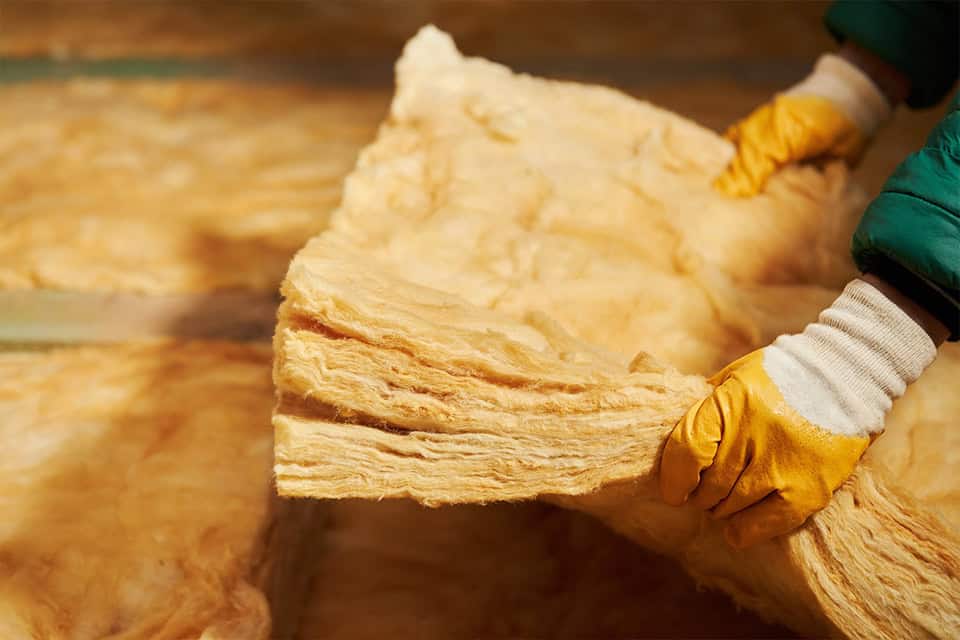

What Are The Recommended U-values for Home Insulation?
The government recommends maximum U-values for all elements of the thermal envelope, shown below. All builders should calculate how much insulation they will need to add to hit these numbers in their construction.
| Area of Thermal Envelope | Maximum U-Value W/(m2.K) |
| Roof | 0.2 |
| Wall | 0.3 |
| Floor | 0.25 |
How Much Insulation Do You Need in Your Floor?
To minimise heat loss through your ground floor level, you will have options for installing additional insulation under the flooring. If you have a concrete foundation you can install solid insulation boards over it, and if you have a suspended timber floor you can install a variety of insulation materials between the joists. Adding insulation to a ground floor can be effective for reducing heat loss, but it will require removing all floor coverings to access, which can be a disruptive process.
Underfloor Insulation
The target U value for a concrete ground floor is 0.25 W/m2k. This can be achieved by building a layer of insulation using solid insulation boards, sold by manufacturers like Celotex and Kingspan, alongside a damp-proof membrane to prevent rising moisture. A 50mm thick insulation board will help to achieve this, resisting heat loss through the ground floor of a property.
Insulating a Suspended Timber Floor
For suspended timber floors, insulation can be installed between the joists, with solid boards or mineral wool batts. While this will vary based on the performance of each branded insulation material, you will be looking for around 70mm of a solid insulation board like PIR and 150mm of mineral wool insulation.
How Much Insulation Do You Need in Walls?
There are a variety of different methods to insulate an external wall. Cavity walls can be filled with blown-in insulation or solid insulation installed during construction. In cases where the exterior walls are solid, or where cavity walls are unsuitable for insulation, there are options to internally or externally insulate these walls.
Cavity Wall Insulation
Uninsulated cavity walls will have a high U-value, ranging from about 2 W/m2k to about 0.6 W/m2k depending on the age of the building. Walls should be aiming for 0.3 W/m2k or lower, though if your walls are older the cavity may not be thick enough to achieve this. Installing cavity wall insulation will help to significantly reduce the U-value of your walls, keeping your home warm and reducing heating bills. More contemporary homes will have cavity wall insulation installed during construction, and there is a range of boards from brands like Celotex that will allow you to reach the desired 0.2 W/m2k in a new build. For older builds, you can combine both cavity wall insulation and internal wall insulation, simply calculate the amount of insulation needed on your internal wall to achieve this.
How much insulation Do You Need on the Internal Walls?
For internal wall insulation, you will have two options, using solid foam insulation boards with a plasterboard face, or building a stud wall and installing insulation within it.
For solid boards with plasterboard facing, your options will range from about 60mm to 100mm. While the U-value of these boards will vary based on the manufacturer, opting for 100mm will ensure a strong level of thermal insulation on your walls. If opting to use a stud wall, you can use a solid board of a similar thickness within it, or opt for a thicker level of mineral wool insulation, up to 120mm in batts. You should use the product specifications to calculate how much you will need to reach a U-value of 0.3 W/m2k.
How Much Insulation on External Walls?
There is a range of solid insulation boards for use on the exterior of a property, with built-in protection against water. When installing external wall insulation, you should be looking to install between 100mm and 150mm in thickness to achieve the desired U-rating of 0.3 W/m2k or lower. Insulation on top of your walls will change the look of your house, something to consider if you live in a semi-detached house or terrace house, or if your property is a listed building.
How To How Much Insulation Your House Has
You can help to determine the level of insulation in your house by checking the Energy Performance Certificate (EPC), which is provided during the sale or purchase of a house. If your EPC has expired it may be worth paying for another, as they will make insulation recommendations to you based on your property.
Can You Have Too Much Insulation?
While you will never be in danger of having too much insulation in a house, there is a point where extra insulation ceases to offer any real benefits while still costing a considerable amount of money. Getting the level of insulation throughout your house to below the numbers stipulated will keep it warm through the winter and generate a marked decrease in your energy bills, but further insulation will not bring any benefits to justify it. It’s also worth considering that increasing the thickness of insulation unnecessarily will reduce the floor space and headspace of your home.
Ready to Insulate Your Home?
Building Materials Nationwide stocks a wide range of insulation products including insulation boards, rolls and batts to find the right materials for your project. If you need any additional advice on choosing insulation, submit an enquiry through the online form below. Our team is always happy to help find the perfect insulation solutions for your build.
Our trade account holders gain access to their own dedicated account manager, who’ll be able to help organise large or unusual orders. This includes sourcing products not listed on our website through our network of suppliers. Sign up for a trade account through our website today, or tell us what you need through the contact form below.
More like this
- Your Best Options for Stud Wall Insulation
- Loft Insulation Installation: Trade Tips and Common Mistakes
- Everything You Need to Know About Foam Board Insulation

